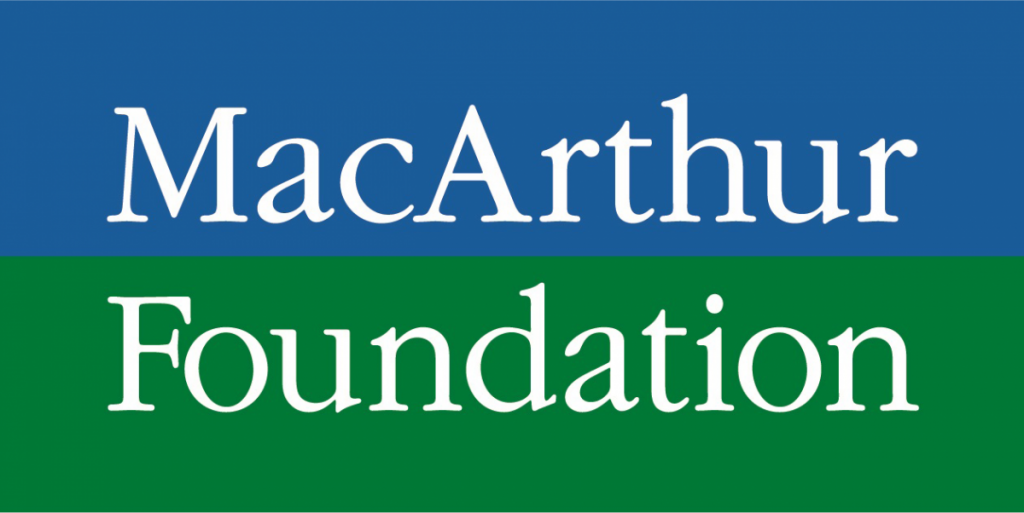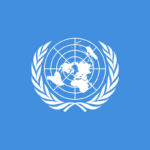On Wednesday, the MacArthur Foundation celebrated its 30th anniversary of impactful service to Nigeria. It was a day of joy and happiness by the hundreds of beneficiaries of grants over the period and a great exhibition telling the pictorial story of their work was displayed. The celebrations were done in songs, dance and poetry. Trust Nigerians, they cannot let go such an occasion without great speeches of praise even if this time it should be considered appropriate.
As the President of the MacArthur Foundation, Professor John Palfrey, said at their 30th anniversary in Nigeria celebrations, they have great love for Nigeria. The proof of the pudding, as they say, is in the eating and over the last 30 years, they have awarded close to 1,000 grants totaling approximately $320 million to 500 organisations and individuals for work based in and focused on Nigeria. There was a significant increase in support since 2015 and half of the amount mentioned was given over the past nine years when many other foundations were giving up on Nigeria and reducing their support.
The foundation of the great work of MacArthur in Nigeria was laid by its first director, Professor Bolanle Awe who, at over 90 years old, was present to not only dance to the music but also gave a great inspirational speech. We pray for more years and strength for this great historian and gender activist. Her work produced great advancement in maternal and child health.
In fact, the foundation was a significant contributor to the success of the midwifery scheme that reduced maternal mortality in Nigeria from 1,000 for 100,000 live births to 400 – a global success story that evolved from the work on advancements in Population and Reproductive Health programme.
- Hardship: It’s time to review your policies, PDP BoT tells Tinubu
- Plus Wallet Redefines Crypto Management with its Fast Listings & Rewards System While WallitIQ & Token Unlocks Shake Up The Market
This work also included the provision of lifesaving medications which are now more readily available, more healthcare providers were trained to provide quality care, and more families became aware of services and how to access them.
Following Prof. Awe’s retirement, Dr Kole Shettima took over the leadership of the foundation for the next 25 years; don’t be surprised at his longevity, he is a “traditional ruler” in the development community so I guess he can be appointed for life as long as he continues to deliver quality work.
Under his guidance, the portfolio of the foundation expanded considerably and its impact multiplied. New programmes leading to improvements in everyday lives through grantees’ work in higher education and girls’ secondary education emerged. They also opened up to the protection and promotion of the rights of citizens through their human rights and international justice work.
Dr Shettima’s people skills – personal effectiveness, interaction skills and intercession skills with his professional approach to philanthropy – enabled him to expand their work in civil society but also extend it to government agencies, the media and technology hubs, universities and citizen groups and professionals.
MacArthur made its big bet on Nigeria in 2015 when it significantly expanded its support. They focused on promoting better delivery of public services by supporting anti-corruption work with the belief that progress in this domain was possible. Since then, they have successfully contributed to the emergence of a more robust and resilient accountability ecosystem, in which a diverse set of civil society organisations, community groups, and government officials, especially at the state and local levels, work together to pursue integrity. The result has been that:
All states throughout Nigeria have passed the Administration of the Criminal Justice Law, and our criminal justice grantees are working to support and enhance the implementation of the ACJA and ACJL to strengthen the “teeth” of Nigeria’s accountability ecosystem.
Their Media and Journalism grantees have developed a significant presence in the Nigerian media landscape, each contributing a substantial amount of corruption-related reporting and investigative journalism. The quantity of corruption-related reporting in the news has grown considerably since 2016, and the quality is on the rise as well among media organisations in the country.
Many of these reports have prompted government action, especially at the state and local levels, on issues such as potential financial crimes, public services corruption, and voter registration fraud.
Their work has created an atmosphere in which in today’s Nigeria, citizens are more willing to report cases of corruption and refuse bribes. According to the 3rd National Corruption Survey of Nigerians from the National Bureau of Statistics and the UN Office on Drugs and Crime, 70 per cent of Nigerians who were asked to pay a bribe in 2023 refused to do so on at least one occasion.
Dr Kole Shettima’s personal commitment to gender equity has led to the significant increase in the provision of support for women in leadership positions, training opportunities, expansion of material support in entrepreneurial work in the informal sector, universities and civil society.
His ideological vision of the necessity for promoting a just, verdant, and peaceful world makes him a genuine progressive not just in words but more crucially, in deeds.
The MacArthur Foundation seeks to be not just a grant-maker but also a thought leader. They have worked to facilitate and encourage the field of philanthropy to evolve into a more agile and stronger ally of civil society, private sector and government partners.
The MacArthur Foundation has developed a methodology that works that other development partners should emulate. For the thirty years it has operated in Nigeria, its leadership and entire staff have been homegrown. Secondly, it supports work in cohorts that enable organic and influential networks. Organisations can learn from each other and amplify one another’s successes. Its emphasis that work must be locally led, by Nigerians, for Nigerians is exemplary.
I offer my very warm congratulations to among others, the MacArthur Board Member, Professor Funmi Olopade, the celebrated oncologist from the University of Chicago who is Nigerian, the President of the Foundation, Professor John Palfrey, their Africa Director, Dr Kole Shettima and organisational pillar, Dr Amina Salihu for the legacy of the positive impact they have created. I urge them to give more and more and more.

 Join Daily Trust WhatsApp Community For Quick Access To News and Happenings Around You.
Join Daily Trust WhatsApp Community For Quick Access To News and Happenings Around You.


